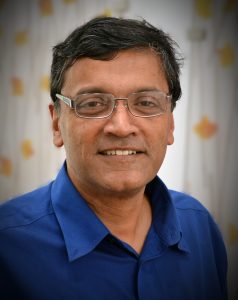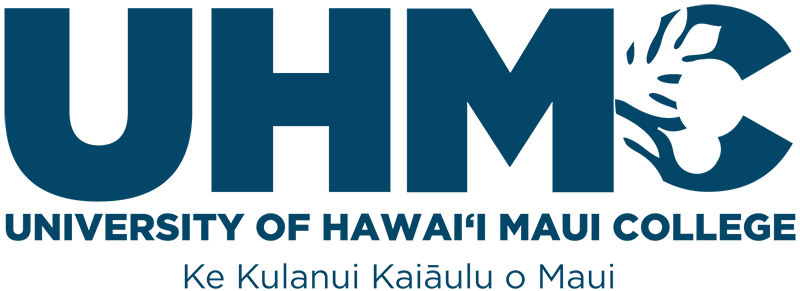#CSP4HI: Advanced Placement (AP) – Computer Science Principles (CSP) for Hawaii
#CSP4HI: NSF STEM+C Program Award – Deployment of Computer Science Principles within Secondary Schools in Hawaii
A Researcher-Practitioner Partnership (RPP) Project, sponsored by the National Science Foundation (NSF), to support the deployment of AP Computer Science Principles (CSP) within secondary schools in Hawaii.
The University of Hawaii (UH), has been awarded a $1M grant from the National Science Foundation (NSF) STEM + Computing (STEM+C) program under Award# 1738824. More details of the NSF Award here! Press release from office of Senator Mazie Hirono (D-HI) is here!
The University of Hawaii in collaboration with the Hawaii Department of Education (HIDoE), will conduct a 3-year study – Computer Science Principles (CSP) for All in Hawaii (#CSP4Hawaii) – aimed at improving state-level initiatives to address diversity in computer science education. The project, structured as research-practitioner partnership (RPP), will replicate and study curriculum and teacher professional development for a CSP course, based on previous work by UTeach. It will identify and remediate barriers to participation of underrepresented groups.
Project Goals:
– Goal: 60 teachers across 30 HI DoE high schools
– Current Status: 36 teachers from 21 HI DoE high schools
– 3-Year study from October 2017 – September 2020
– Researcher-Practitioner Partnership (RPP)
– AP CSP curriculum from UTeach
– Networked Improvement Communities (NIC)
AP Computer Science Principles (AP CSP) Achievements at the Hawaii Department of Education:
- Increase in high schools who offered AP CSP exam from 7 in May 2017 to 25 in May 2020
- Increase of students who took AP CSP exams from 139 in May 2017 to 462 in May 2020
- Increase of students who passed AP CSP exam from 66 (47%) in May 2017 to 268 (58%) in May 2020
- Increase of women who took AP CSP from 36 (26%) in May 2017 to 165 (36%) in May 2020
Cohort 1 – Summer 2018 and SY 2018-2019
- 17 HI DoE teachers – 14 attended UTeach Workshop, 1 UTeach online
- 11 HI DoE High Schools (Aiea, Baldwin, Campbell, Castle, E-School, Kapaa, King Kekaulike, Konawaena, Lahainaluna, Leilehua, Maui)
Press Release from UH News here!
Cohort 2 – Summer 2019 and SY 2019-2020
- 19 teachers (18 in workshop, 1 online); 11 new schools in Cohort 2, 14 total
- Schools in Cohort 2 (# teachers): Kalani (2), Kaiser (2), Molokai (1), Kauai (2), Farrington (2), Hilo (1), HI Tech Academy (1), Kapolei (1), Pearl City (1), McKinley (1), Maui District Office (1), Aiea (1), Leilehua (1), and Konawaena (2).
- Cohort 2 Mentors: Loren Ayresman (King Kekaulike), Alicia Nakamitsu (Aiea), and Darren Kojima (Leilehua).
Cohort 3 – Summer 2020 and SY 2020-2021
- 24 teachers in workshop; 10 new schools in Cohort 3, 16 total
- Schools in Cohort 3 (# teachers): Baldwin (2), Ka’u (1), Kihei Charter (2), Radford (2), Lanai (2), Waimea (2), HTA Hawaii (2), Castle (1), Waialua (2), Kalaheo (1), Kapolei (1), King Kekaulike (1), Moanalua (2), Kohala (1), Lahainaluna (1), and Hana (1).
- Cohort 3 Mentors: Whitney Aragaki (Waiakea), Loren Ayresman (King Kekaulike), Ken Kang (Aiea), Garrett Hatakenaka (Kaiser), and Leah Aiwohi (Kauai)
What is a Researcher-Practitioner Partnership (RPP) Project?
RPPs aim to strengthen the capacity of an organization to reliably produce valued CS and CT education outcomes for diverse groups of students, educated by different teachers from varied organizational contexts. The focus is on succeeding when implemented at scale. These studies have less prescriptive research designs and methods, with research occurring in rapid, iterative, and context-expanding cycles. They require deep engagement of researchers and practitioners during the collaborative research on problems of practice that are co-defined and of value to researchers and education agencies, for example, a school district or community of schools. [Source: collaboratory.mspnet.org] More details on the Research-Practice Partnership Tooklit here!
Project Investigators and Key Personnel:
- Dr. Debasis Bhattacharya, (Principal Investigator)
- Gerald Lau, (Co-PI)
- Steven Auerbach, (Co-PI)
- Dr. Debra Nakama, (Co-PI)
- Jodi Ito (Co-PI)
- Debbie McNulty, Project Coordinator
- Dr. Ada Haynes, External Evaluator (Tennessee Tech University)
What is Advanced Placement (AP) Computer Science Principles (CSP)?
AP CSP is all about the fundamentals of computing, including problem solving, working with data, understanding the Internet, cybersecurity, and programming. The goals are about broadening your understanding of computer science for use in a diversity of majors and careers.
The AP Computer Science Principles Assessment consists of two components: a through-course assessment and the end-of-course AP Exam. Both of these parts will measure your achievement of the course learning objectives. More details from AP here.
Faculty Bio: Dr. Debasis Bhattacharya (Debāśiṣ Bhaṭṭāchārya, দেবাশীষ ভট্টাচার্য, देवाशीष भट्टाचार्य) is currently a tenured faculty member at the University of Hawai’i Maui College, and program coordinator for the Applied Business and Information Technology (ABIT) bac
Dr. Debasis Bhattacharya, JD, DBA
Associate Professor
Principal Investigator (NSF STEM+C Award No. 1738824)
UH Maui College
808.984.3619
debasisb at hawaii dot edu
Kaaike 114 map
@uhmcabit | Linkedin
Partial support for this work was provided by the following grants:
– Google for Education grant. Check out CS First
– NSF STEM + Computing (STEM+C) program under Award No. 1738824
– NSF Advanced Technological Education (ATE) program under Award No. 1700562
Any opinions, findings, and conclusions or recommendations expressed in this material are those of the author(s) and do not necessarily reflect the views of the National Science Foundation or Google. University of Hawaii Maui College is an equal opportunity/affirmative action institution.

